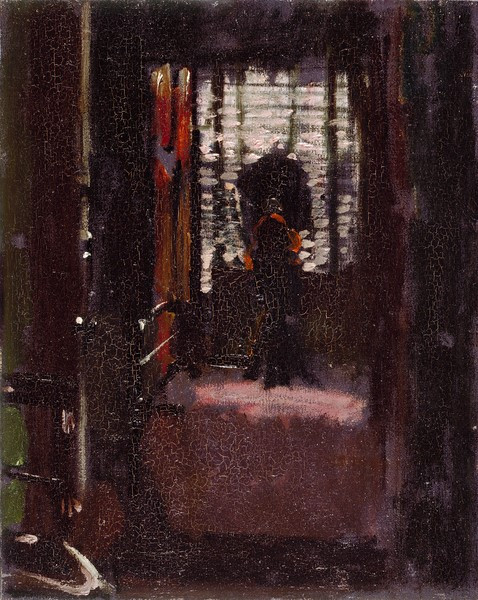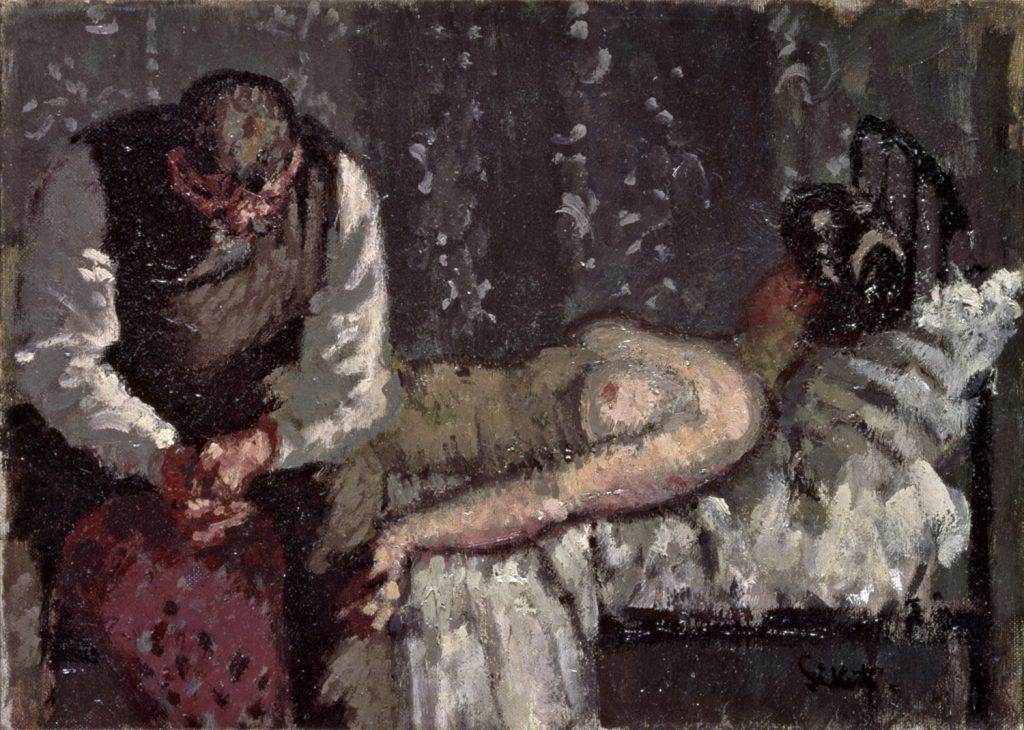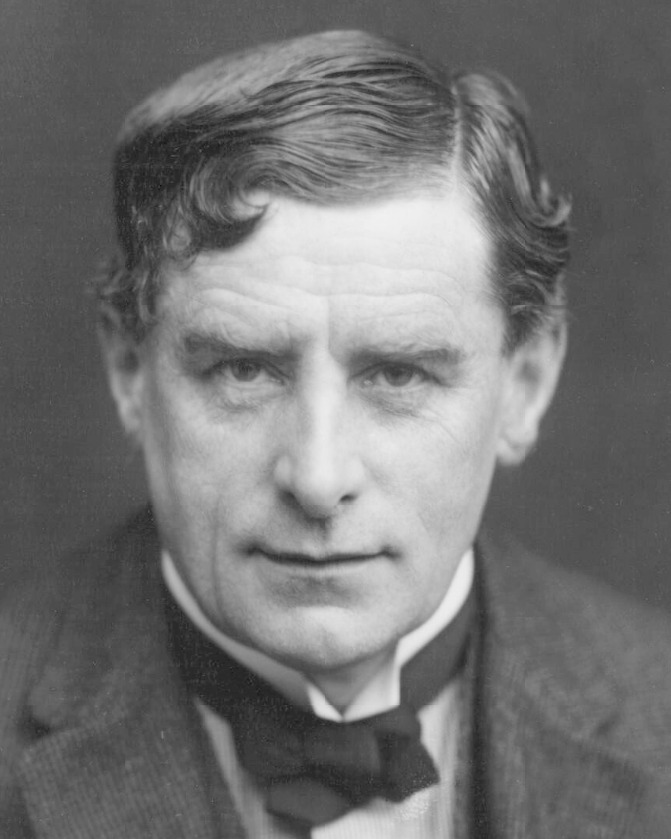
Walter Sickert was a German-born English painter and printmaker who was a member of the Camden Town Group of Post-Impressionist artists in early 20th-century London. His work includes portraits of well-known personalities and images derived from press photographs. He is considered a prominent figure in the transition from Impressionism to Modernism.
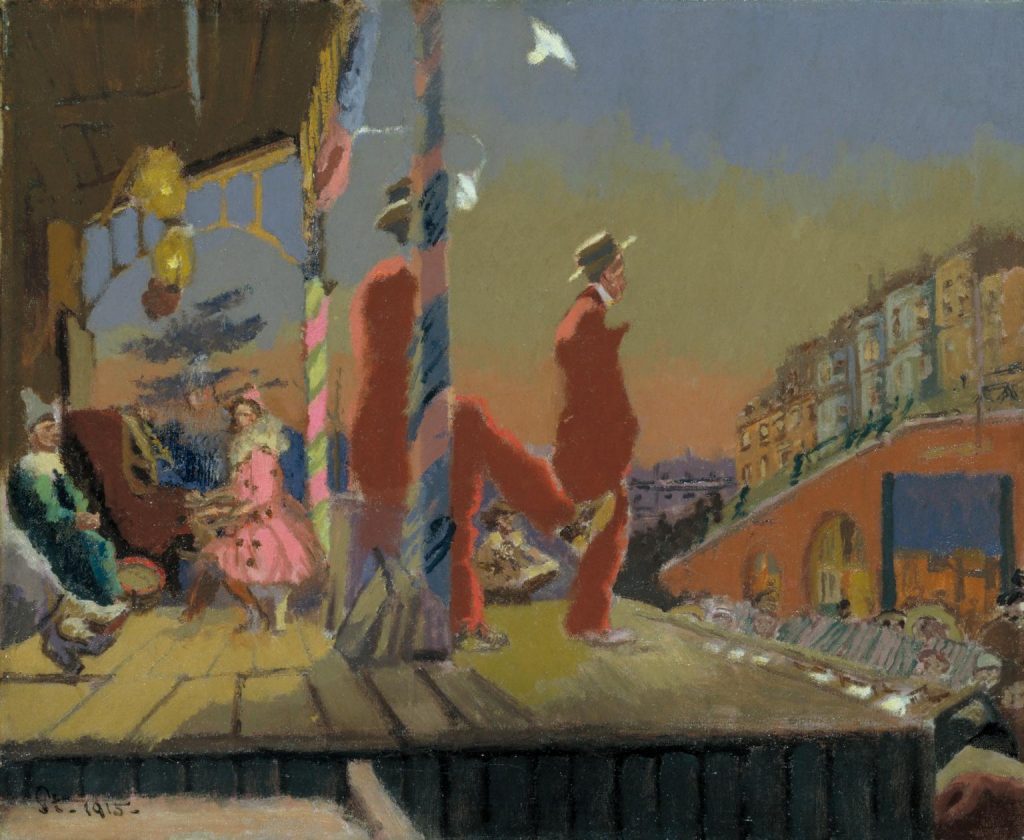
Sickert painted the first of his music hall scenes. Thereafter popular entertainment was a recurring theme in his work. While Brighton Pierrots belongs to that strand of his production, its highly original composition.
After his childhood life as an actor, he got into the Slade School of Fine Art. After that, he worked as James McNeil Whistler’s assistant and disciple and was affected by his refined colors.
In 1883, he met Edgar Degas in Paris, continued to learn modern painting, and built a reputation as a low-tone landscape painter. Degas’ opera, cafe scenery, and dancer paintings aroused interest in his theater, which was once an actor. And it was an opportunity to draw a picture based on this.
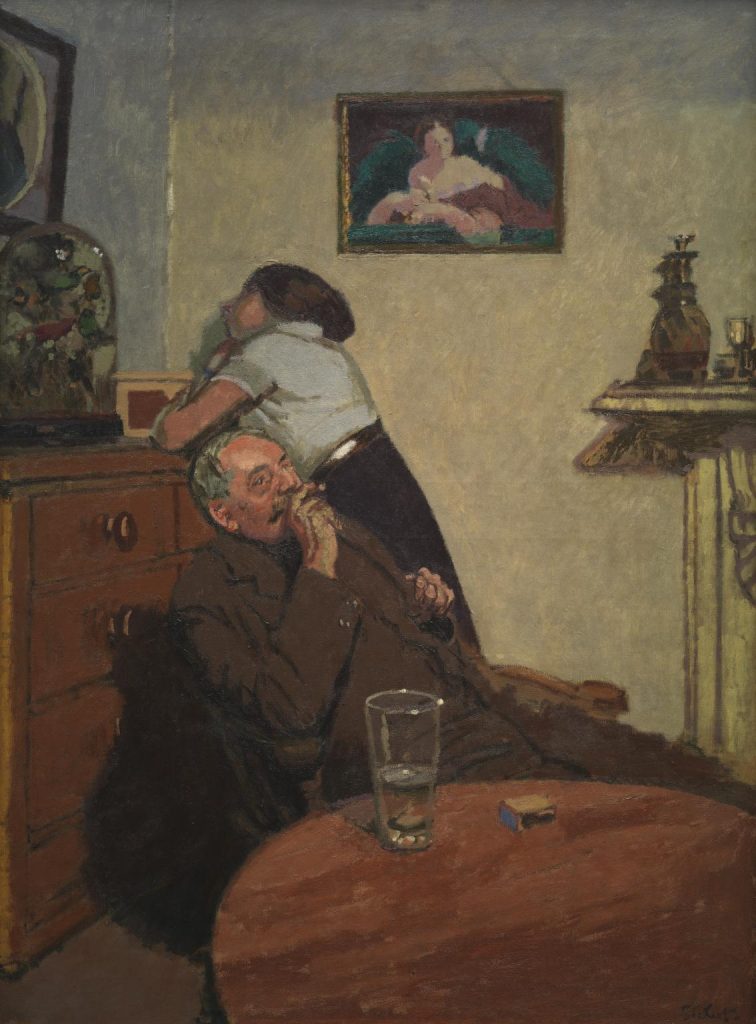
The title of this painting means ‘boredom’ in French. Sickert suggests the strained relationship between the figures by their lack of communication.
After marriage, Sickert became friends with various French artists and began painting in nature with wet techniques like Degas. He divided within the French Impressionism group and appeared as a separate group called “London Impressionism.”
There is one more interesting fact about him. The Jack the Ripper murders of 1888 gripped London, shaping much of the social scene of the time. Referring directly to the Ripper murders, Jack the Ripper’s Bedroom and The Camden Town Murder have spawned many theories about Sickert’s involvement with the case. Whatever people’s beliefs are, Sickert’s work offers an intoxicating glimpse into the lives of London’s citizens at the turn of the last century.
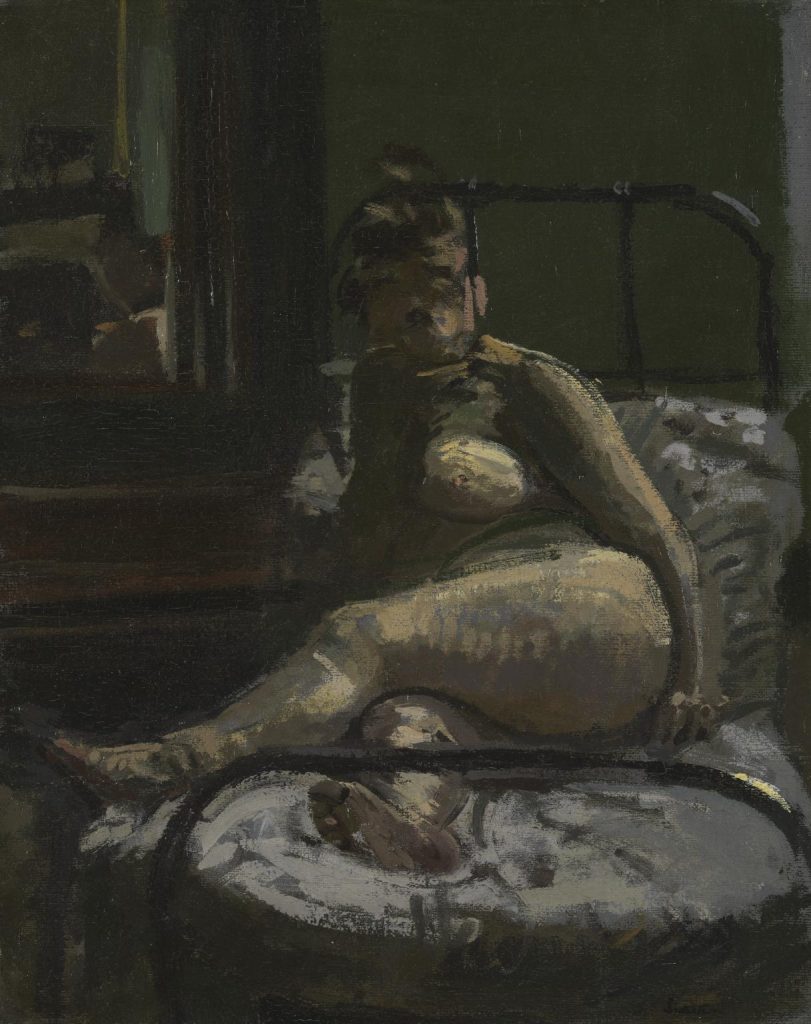
Sickert challenged traditional idealised treatments of the nude.
He placed figures in real environments.
He remained a notable person after his death, but his work was revaluated in the late 20th century. In the 21st century, Sickert research and exhibitions continued, so it made him one of the most important British artists of the early modern era.
His works are real enough to make me feel that I am in that scene. Perhaps he used a low tone color, but his painting was dark on the one hand, and somehow felt tense for me. I am pretty sure that Walter Sickert has been a colorful, attractive, fascinating, and world-class figure throughout his life.
Writing sources:
https://www.britannica.com/biography/Walter-Richard-Sickert
https://en.wikipedia.org/wiki/Walter_Sickert
https://www.tate.org.uk/art/research-publications/camden-town-group/walter-richard-sickert-r1105345
https://www.courtauldian.com/single-post/2018/12/07/walter-sickert-as-jack-the-ripper
